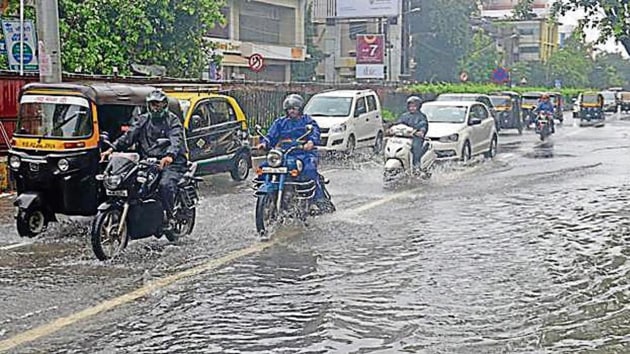₹891-crore smart plan to unclog Mumbai’s roads gets state nod
The state-of-the-art system will decide signal timings based on density of traffic, identify vehicles violating traffic rules and also create green corridors during emergencies.
A solution to the city’s traffic woes may be in sight, with the state cabinet approving a ₹891-crore Intelligent Traffic Management System (ITMS) on Tuesday.

The state-of-the-art system will decide signal timings based on density of traffic, identify vehicles violating traffic rules and also create green corridors during emergencies.
The system, expected to be operational within a year, will comprise its own set-up of around 1,000 CCTV cameras, radars and a command and control room for monitoring and sending out alerts to motorists about traffic snarls.
The system will help reduce the manual management of traffic and also have a public address system that will be used during festivals and huge public gatherings.
After its World Bank-funded traffic management project launched in 2005-06 failed, the home department envisaged the ambitious ITMS, which will be implemented in the city in a phased manner.
“It will be a comprehensive system. Its state-of-the-art technology will ensure smart signalling via multiple parameters, including the length of the road, intersection clearance and peripheral road drainage. A decision over the types of technology will be taken by a high-power committee in due course,” said Amitabh Gupta, principal secretary, home department.
The administrative and financial approval for the plan, chalked out by the office of the joint commissioner (traffic) of Mumbai police, with the help of a project management consultant, was given by the state government. A high-power committee, headed by the additional chief secretary of the home department, will now decide on remaining modalities, including allotment of tenders.
According to a senior IPS officer, the centralised system will monitor traffic congestion to decide traffic signals. “This will help us in the effective management of VIP movements in the city. Once the route of the movement is fed into the system, it will take care of a special corridor. It will also help us scan RFID-enabled number plates missing in the existing system,” he said. The officer said the system is expected to be in operation within a year.
The 1,000 CCTV cameras are expected to be installed on 3,866 street poles and 839 cantilever poles. The home department is considering to later integrate these cameras with the existing network of 5,000 cameras across the city. The agency, appointed to operate the system, will be shouldered with the responsibility of maintaining it for five years

Stay updated with all the Breaking News and Latest News from Mumbai. Click here for comprehensive coverage of top Cities including Bengaluru, Delhi, Hyderabad, and more across India along with Stay informed on the latest happenings in World News.
Stay updated with all the Breaking News and Latest News from Mumbai. Click here for comprehensive coverage of top Cities including Bengaluru, Delhi, Hyderabad, and more across India along with Stay informed on the latest happenings in World News.





